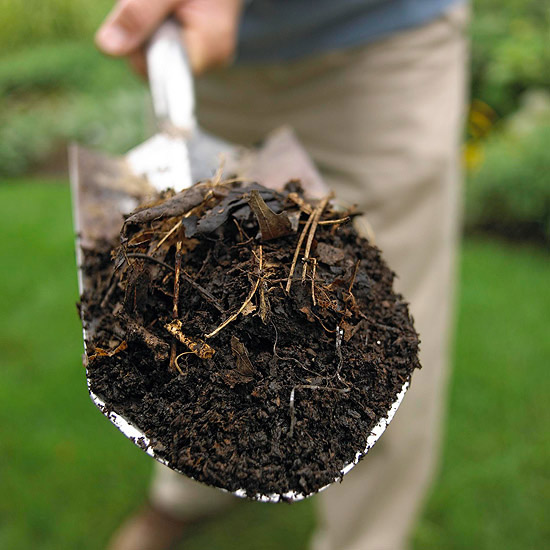






Does it take a green thumb to grow a garden? Maybe a little, but what it mostly takes is good garden soil. As with many things, bad garden soil can be made better, but good garden soil needs constant tending to provide the best base for your plants, trees, and shrubs. Luckily, garden soil is pretty easy to understand.
continue reading belowGarden soil is made up of three particle sizes: the smallest particles are clay; the midsize particles are silt; and the largest particles are sand. The proportions of those three components -- referred to as a soil's "texture" -- determines how easy your garden soil is to work with and how well it will support plants. A fine-textured soil has a lot of clay; a coarse-textured soil is sandy.
Sandy soil is nutrient-poor and dries out quickly, so it requires more water and fertilizer, but it has excellent drainage. Clay soil will be sticky when wet (making it hard to till) and drains slowly, but it holds a lot of water and nutrients, which is good for plants. Silt is intermediate in these qualities. Ideally, soil should include a significant amount of all three components, which will give it the good properties of each. Knowing these characteristics, you can determine what kind of soil you have.
Whether your soil has too much clay or too much sand, the remedy is to add organic matter. In other words, compost. Tilling in 2-3 inches of compost allows soil to hold more water and nutrients. The chemical properties of compost also help prevent soil compaction.
Determine how acidic or alkaline your soil is by a pH number between 0 to 14.0. A pH 7.0 is neutral -- neither acidic nor alkaline. Below 7.0 is acidic "sour" and above it is alkaline "sweet." Garden soil pH levels rarely run below 5.0 or above 9.0, and in a majority of cases is between 6.0 and 8.0. Within that range, most garden plants will perform reasonably well; however, there are some exceptions.
Acid-loving plants like blueberries, azaleas, and rhododendrons prefer a pH of less than 6.0 but will usually tolerate a pH up to 7.0. If your soil's pH is alkaline, you may need to make it more acidic in order for such plants to thrive. Certain hydrangeas need acidic soil to turn their blossoms blue. There also are plants that are called "lime haters." These plants don't necessarily need acidic conditions but can be severely affected by overly alkaline conditions (limestone is extremely alkaline).
Lowering pH can be accomplished by adding acidifiers to soil. Sulfur is a potent acidifier, and just adding lots of compost (a good idea in any case) can lower pH, too. Pine needle mulch will gradually lower pH as well, though it takes years. Contrary to popular belief, gypsum does not directly lower pH.
By adding lime to the soil, the pH can be raised. Many people add lime habitually to their gardens, but there's no reason to do so unless pH has become excessively low (below 5.0). This sometimes happens in lawns but seldom in garden beds.
Learn how to give your soil what it needs for optimum performance.
It's important to remember that soil has a tendency to bounce back to its original pH, and that repeated applications over several years may be necessary to make the pH changes stick.
You'll need a test to determine soil pH. Simple DIY test kits are sold at garden centers for a minimal cost. A more accurate pH reading, and a great deal of other information, can be obtained with a professional test, which many garden centers and cooperative extension offices offer for a reasonable fee. In practice, keeping pH within reasonable limits and amending regularly with compost will almost always give good results. But if plants seem to be suffering for no apparent reason, a complete soil test may help you determine the reason.
Learn how to do a soil test.
Copyright © www.100flowers.win Botanic Garden All Rights Reserved